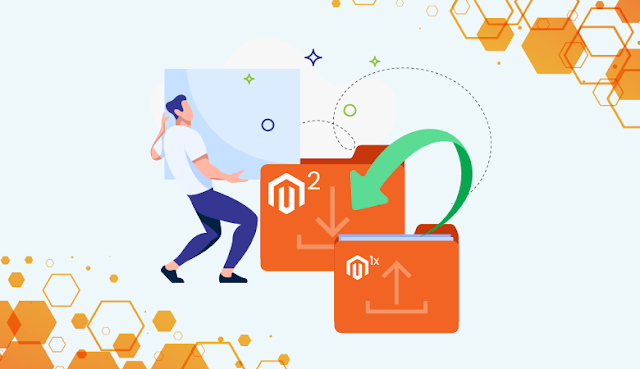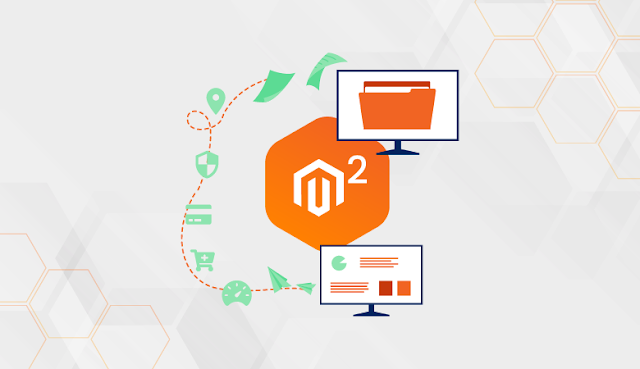Magento is one of the most popular eCommerce platforms globally. It enjoys the support of a large, and robust community that is constantly working to keep Magento ahead of other global competitors. It’s been a while that Magento has released the Magento 2.x version. But with the Magento 1.x End of Life already here, vendors are hurrying to finish with the migration process.
The eCommerce shopping cart without support and maintenance is prone to vulnerabilities. With an increased number of cyber-attacks, there is a possibility of the store being compromised and customer/store data misused.
Migrating to Magento 2.x has various advantages like:
- Improved Performance
- New Admin Interface and Features
- Responsive Design
- Enhanced Security
- User-friendly Checkout
- Multiple Payment options
- Enhanced security like automatic data backup, Unique Admin URL and 2 Factor Authentication
- Magento 2 has advanced reporting for orders, customers, and products
However, like with any platform, there are a few challenges associated with the migration of Magento from 1.x to Magento 2.x. If migration is done without any roadmap or strategy in place, there can be a serious issue with your business. Let’s take a look at the few top Magento migration difficulties:
- Data Migration
Data migration is the process of transferring data whether it is product data, customer data, sales data, etc to the new platform. Migrating all the data to Magento 2 though sounds simple can be quite difficult and strenuous if not planned properly. The main aim of the migration is to provide seamless browsing and shopping experience to customers. With the migration to the new platform, you should be careful that old customers can access their accounts in the same effortless manner. In a large number of cases, it is seen that after migration to Magento 2 there is a loss of old customer data, and customers have to register again. In such a scenario, ensure that a quick password reset mechanism is in place. Similar to customer data, products, their attributes require migration to the new platform along with the images and inventory. If possible, try to migrate the sales historical figure to compare with the new sales figures and get a comparative number. Also, it is beneficial to retain the historical sales data of customers that they can access. If you have a “Resources” section on your website comprising of Blogs and White papers, then you need to migrate those as well in order to maintain your SEO rankings and organic traffic of your website.
Data migration is the most crucial but complicated process. To complete this process efficiently, it is often wise to employ the services of a web development company.
- Handling of 301 redirects and 404 errors
The landing pages URL has been cached and already built considerable authority in various search engines. So, you need to try to have the same URLs for the products, categories, CMS pages, etc even on the new platform. In case, the URLs need to be changed, a proper 301 redirections should be in place. Magento has an in-built proper 301 redirection module to handle this. So, once you create a 301 redirect URL, it informs search engines that the requested URL has moved to another URL. This saves all your SEO rankings and you do not lose out on business or have to work on the SEO settings from scratch. Keep a tab on your webmaster tool to find out any newly generated 404 errors.
There might also be an issue of duplicate content if the canonical URLs are not properly set. When migrating to Magento 2, you need to set up a basic SEO perspective as it helps to avoid duplicate content and onsite SEO issues.
Look for proper hosting services when migrating to Magento 2, because improper hosting or caching can lead to downtime.
Migration to Magento 2 is now essential and not an option anymore. Magento has stopped releasing security patches for both Enterprise and Community versions (now called Magento Commerce 1 and Magento Open Source 1 respectively) from June 2020. In order to keep the data of the customer and store owner safe, it’s imperative that stores are upgraded to the latest version of Magento.
- Without security patches, your Magento eCommerce store automatically becomes exposed to various vulnerabilities.
- It will become difficult to find the right extensions for the Magento 1 store.
- Hackers can easily steal important personal information from the database.
- You will find very few agencies who will be working on the old technology of Magento 1, and even if you find one the charges may be high.
Continuing to stay on Magento 1 will mean a continuous threat to your online store and poor customer experience as the competitors might have advanced to the upgraded version.
Citytech being a specialized Magento Development Company, can help you migrate your store to Magento 2.x with personal attention.
Citytech carefully migrates your Magento 1.x site to Magento 2.x. We migrate your data, SEO settings, plugins, and settings so that you do not lose any valuable information during the upgrade. Our managed upgrade service makes the entire process smooth and seamless.
To let us migrate your Magento 1 store to Magento 2 before the End of Life, contact us today: https://www.citytechcorp.com/technology/magento-migration/


